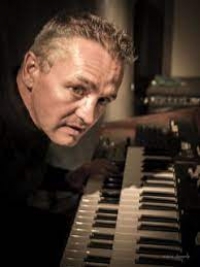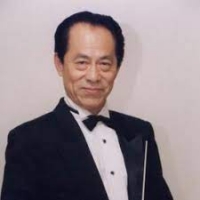Latest Sheet Music
Ennio Morricone
Ennio Morricone, OMRI (born November 10, 1928), is an Italian composer and conductor. He has composed and arranged scores for more than 500 film and television productions. Morricone is considered as one of the most influential film composers since the late 1950s. He is well-known for his long-term collaborations with international acclaimed directors such as Sergio Leone, Brian De Palma, Barry Levinson, and Giuseppe Tornatore.
He wrote the characteristic film scores of Leone's Spaghetti Westerns A Fistful of Dollars (1964), For a Few Dollars More (1965), The Good, the Bad and the Ugly (1966), Once Upon a Time in the West (1968), The Great Silence (1968), and My Name Is Nobody (1973). In the 80s, Morricone composed the scores for John Carpenter's horror movie The Thing (1982), Leone's Once Upon a Time in America (1984), Roland Joffé's The Mission (1986), Brian De Palma's The Untouchables (1987) and Giuseppe Tornatore's Cinema Paradiso (1988).
His more recent compositions include the scores for Oliver Stone's U Turn (1997), Tornatore's The Legend of 1900 (1998) and Malèna (2000), Mission to Mars (2000) by Brian De Palma, Fateless (2005), and Baaria - La porta del vento (2009). Ennio Morricone has won two Grammy Awards, two Golden Globes and five Anthony Asquith Awards for Film Music by BAFTA in 1979–1992. He has been nominated for five Academy Awards for Best Music, Original Score in 1979–2001. Morricone received the Honorary Academy Award in 2007 "for his magnificent and multifaceted contributions to the art of film music". He was the second composer to receive this award after its introduction in 1928.
He wrote the characteristic film scores of Leone's Spaghetti Westerns A Fistful of Dollars (1964), For a Few Dollars More (1965), The Good, the Bad and the Ugly (1966), Once Upon a Time in the West (1968), The Great Silence (1968), and My Name Is Nobody (1973). In the 80s, Morricone composed the scores for John Carpenter's horror movie The Thing (1982), Leone's Once Upon a Time in America (1984), Roland Joffé's The Mission (1986), Brian De Palma's The Untouchables (1987) and Giuseppe Tornatore's Cinema Paradiso (1988).
His more recent compositions include the scores for Oliver Stone's U Turn (1997), Tornatore's The Legend of 1900 (1998) and Malèna (2000), Mission to Mars (2000) by Brian De Palma, Fateless (2005), and Baaria - La porta del vento (2009). Ennio Morricone has won two Grammy Awards, two Golden Globes and five Anthony Asquith Awards for Film Music by BAFTA in 1979–1992. He has been nominated for five Academy Awards for Best Music, Original Score in 1979–2001. Morricone received the Honorary Academy Award in 2007 "for his magnificent and multifaceted contributions to the art of film music". He was the second composer to receive this award after its introduction in 1928.
Desree

Des'ree (born Desirée Annette Weeks, 30 November 1968, Barbados) is a Barbados born British pop/soul singer who was popular during the 1990s, mostly remembered for her hits "Feel So High", "You Gotta Be", "Kissing You", and "Life".
Des'ree was born in Barbados, where she has passed her first years, and raised in South London and introduced to reggae, calypso and jazz music by her parents. Des'ree's interest in pursuing a musical career followed a three year trip to Barbados with her family at the age of fourteen. In 1992, the single "Feel So High" got extensive international airplay and reached #13 in the UK and #28 in Australia.
In 1994, her single "You Gotta Be" hit the Billboard Hot 100 Top 5, peaking at #5, and was a hit in the UK three times. "You Gotta Be" became the most played music video on VH1 and remained on the Billboard recurrent airplay chart for 80 weeks.
Following the single's success, Des'ree's second album, I Ain't Movin' , sold in excess of 1.6 million copies worldwide. Her success lead to an American tour with Seal in 1995. The following year, she contributed the song "Kissing You" to the soundtrack of the film William Shakespeare's Romeo + Juliet.
In 1998, her single "Life" became a hit in Europe. In 1999, she won a BRIT Award for the British Female Solo Artist category.
She released Dream Soldier in 2003.
Des'ree has also performed various duets, including "Fire" with Babyface (part of the soundtrack for the independent film, Hav Plenty), "Plenty Lovin" with Steve Winwood and "Delicate" with Terence Trent D'Arby.
Des'ree was born in Barbados, where she has passed her first years, and raised in South London and introduced to reggae, calypso and jazz music by her parents. Des'ree's interest in pursuing a musical career followed a three year trip to Barbados with her family at the age of fourteen. In 1992, the single "Feel So High" got extensive international airplay and reached #13 in the UK and #28 in Australia.
In 1994, her single "You Gotta Be" hit the Billboard Hot 100 Top 5, peaking at #5, and was a hit in the UK three times. "You Gotta Be" became the most played music video on VH1 and remained on the Billboard recurrent airplay chart for 80 weeks.
Following the single's success, Des'ree's second album, I Ain't Movin' , sold in excess of 1.6 million copies worldwide. Her success lead to an American tour with Seal in 1995. The following year, she contributed the song "Kissing You" to the soundtrack of the film William Shakespeare's Romeo + Juliet.
In 1998, her single "Life" became a hit in Europe. In 1999, she won a BRIT Award for the British Female Solo Artist category.
She released Dream Soldier in 2003.
Des'ree has also performed various duets, including "Fire" with Babyface (part of the soundtrack for the independent film, Hav Plenty), "Plenty Lovin" with Steve Winwood and "Delicate" with Terence Trent D'Arby.
Ewald Straesser
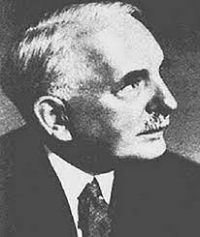
Ewald Straesser (Sträßer) (27 June 1867 – 4 April 1933) was a German composer.Straesser was born in Burscheid, near Cologne. He was a student of Franz Wüllner at the Hochschule für Musik und Tanz Köln and later counted Georg van Albrecht among his own students, also Erwin Schulhoff (teaching him instrumentation/orchestration) At the Hochschule he succeeded Joseph Haas as professor of composition in 1921.He died in 1933 in Stuttgart. Wilhelm Furtwängler, Hermann Abendroth and other conductors and ensembles featured works by Straesser in their concerts. The conductor Karl Panzner (1866–1923) championed Straesser's symphonies early on (and premiered his 5th symphony.)
Traditional

traditional music
Ludwig van Beethoven

Ludwig van Beethoven (/ˈlʊdvɪɡ væn ˈbeɪt(h)oʊvən/ (About this soundlisten); German: (About this soundlisten); baptised 17 December 1770 – 26 March 1827) was a German composer and pianist. A crucial figure in the transition between the classical and romantic eras in classical music, he remains one of the most recognized and influential musicians of this period, and is considered to be one of the greatest composers of all time.
Beethoven was born in Bonn, the capital of the Electorate of Cologne, and part of the Holy Roman Empire. He displayed his musical talents at an early age and was vigorously taught by his father Johann van Beethoven, and was later taught by composer and conductor Christian Gottlob Neefe. At age 21, he moved to Vienna and studied composition with Joseph Haydn. Beethoven then gained a reputation as a virtuoso pianist, and was soon courted by Prince Lichnowsky for compositions, which resulted in Opus 1 in 1795.
Beethoven was born in Bonn, the capital of the Electorate of Cologne, and part of the Holy Roman Empire. He displayed his musical talents at an early age and was vigorously taught by his father Johann van Beethoven, and was later taught by composer and conductor Christian Gottlob Neefe. At age 21, he moved to Vienna and studied composition with Joseph Haydn. Beethoven then gained a reputation as a virtuoso pianist, and was soon courted by Prince Lichnowsky for compositions, which resulted in Opus 1 in 1795.
Dennis Báthory-Kitsz
Dennis Báthory-Kitsz is a Hungarian-American author and composer. Aside from music, he was an author during the first generation of personal computers, and interviewed Bill Gates. His career in technology is evident in over 600 articles and books on the subject.
Tchaikovsky

Pyotr Il'yich Tchaikovsky (May 7 1840 â November 6 1893) was a Russian composer of the Romantic era. While not part of the nationalistic music group known as "The Five", Tchaikovsky wrote music which, in the opinion of Harold Schonberg, was distinctly Russian: plangent, introspective, with modally-inflected melody and harmony.
Aesthetically, Tchaikovsky remained open to all aspects of Saint Petersburg musical life. He was impressed by Serov and Balakirev as well as the classical values upheld by the conservatory. Both the progressive and conservative camps in Russian music at the time attempted to win him over. Tchaikovsky charted his compositional course between these two factions, retaining his individuality as a composer as well as his Russian identity. In this he was influenced by the ideals of his teacher Nikolai Rubinstein and Nikolai's brother Anton.
Tchaikovsky's musical cosmopolitanism led him to be favored by many Russian music-lovers over the "Russian" harmonies and styles of Mussorgsky, Borodin and Rimsky-Korsakov.
Nonetheless he frequently adapted Russian traditional melodies and dance forms in his music, which enhanced his success in his home country. The success in St. Petersburg at the premiere of his Third Orchestral Suite may have been due in large part to his concluding the work with a polonaise. He also used a polonaise for the final movement of his Third Symphony.
Aesthetically, Tchaikovsky remained open to all aspects of Saint Petersburg musical life. He was impressed by Serov and Balakirev as well as the classical values upheld by the conservatory. Both the progressive and conservative camps in Russian music at the time attempted to win him over. Tchaikovsky charted his compositional course between these two factions, retaining his individuality as a composer as well as his Russian identity. In this he was influenced by the ideals of his teacher Nikolai Rubinstein and Nikolai's brother Anton.
Tchaikovsky's musical cosmopolitanism led him to be favored by many Russian music-lovers over the "Russian" harmonies and styles of Mussorgsky, Borodin and Rimsky-Korsakov.
Nonetheless he frequently adapted Russian traditional melodies and dance forms in his music, which enhanced his success in his home country. The success in St. Petersburg at the premiere of his Third Orchestral Suite may have been due in large part to his concluding the work with a polonaise. He also used a polonaise for the final movement of his Third Symphony.
Dvorak

Antonín Leopold Dvořák (September 8, 1841 – May 1, 1904) was a Czech composer of Romantic music, who employed the idioms and melodies of the folk music of his native Bohemia and Moravia. His works include operas, symphonic, choral and chamber music. His best-known works are his New World Symphony (particularly the slow movement), as well as his Slavonic Dances, American String Quartet, and Cello Concerto in B minor.
Dvořák wrote in a variety of forms: his nine symphonies generally stick to classical models that Beethoven would have recognised, but he also worked in the newly developed symphonic poem form and the influence of Richard Wagner is apparent in some works. Many of his works also show the influence of Czech folk music, both in terms of rhythms and melodic shapes; perhaps the best known examples are the two sets of Slavonic Dances. Dvořák also wrote operas (the best known of which is Rusalka); serenades for string orchestra and wind ensemble; chamber music (including a number of string quartets, and quintets); songs; choral music; and piano music.
Dvořák wrote in a variety of forms: his nine symphonies generally stick to classical models that Beethoven would have recognised, but he also worked in the newly developed symphonic poem form and the influence of Richard Wagner is apparent in some works. Many of his works also show the influence of Czech folk music, both in terms of rhythms and melodic shapes; perhaps the best known examples are the two sets of Slavonic Dances. Dvořák also wrote operas (the best known of which is Rusalka); serenades for string orchestra and wind ensemble; chamber music (including a number of string quartets, and quintets); songs; choral music; and piano music.
Herbie Hancock

Herbert Jeffrey "Herbie" Hancock (born April 12, 1940) is an American pianist and composer. He is regarded not only as one of the greatest living jazz musicians, but also as one of the most influential jazz musicians of the 20th century. His music embraces elements of funk and soul while adopting freer stylistic elements from jazz. In his jazz improvisation, he possesses a unique creative blend of jazz, blues, and modern classical music, with harmonic stylings much like the styles of Claude Debussy and Maurice Ravel.
As part of Miles Davis's "second great quintet," Hancock helped redefine the role of a jazz rhythm section, and was one of the primary architects of the "post-bop" sound. Later, he was one of the first jazz musicians to embrace synthesizers and funk. Hancock's music is often melodic and accessible; he has had many songs "cross over" and achieved success among pop audiences.
Herbie's best-known solo works include "Cantaloupe Island," "Watermelon Man" (later performed by dozens of musicians, including bandleader Mongo Santamaria), "Maiden Voyage," "Chameleon," and the singles " I Thought It Was You" and "Rockit." His 2007 tribute album "River: The Joni Letters" won the 2007 Grammy Award for Album of the Year, only the second jazz album ever to win the award after 1965's Getz/Gilberto.
He is an adherent of the Nichiren school of Mahayana Buddhism.
As part of Miles Davis's "second great quintet," Hancock helped redefine the role of a jazz rhythm section, and was one of the primary architects of the "post-bop" sound. Later, he was one of the first jazz musicians to embrace synthesizers and funk. Hancock's music is often melodic and accessible; he has had many songs "cross over" and achieved success among pop audiences.
Herbie's best-known solo works include "Cantaloupe Island," "Watermelon Man" (later performed by dozens of musicians, including bandleader Mongo Santamaria), "Maiden Voyage," "Chameleon," and the singles " I Thought It Was You" and "Rockit." His 2007 tribute album "River: The Joni Letters" won the 2007 Grammy Award for Album of the Year, only the second jazz album ever to win the award after 1965's Getz/Gilberto.
He is an adherent of the Nichiren school of Mahayana Buddhism.
Theodore Dubois
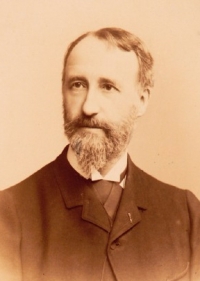
François-Clément Théodore Dubois (24 August 1837 – 11 June 1924) was a French composer, organist, and music teacher.Théodore Dubois was born in Rosnay in Marne. He studied first under Louis Fanart (the choirmaster at Reims Cathedral) and later at the Paris Conservatoire under Ambroise Thomas. He won the Prix de Rome in 1861. In 1868, he became choirmaster at the Church of the Madeleine, and in 1871 took over from César Franck as choirmaster at the Basilica of Sainte-Clotilde.
J.J. Quantz
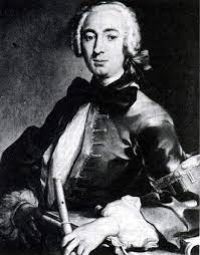
Johann Joachim Quantz was a German composer, flutist and flute maker of the late Baroque period. Much of his professional career was spent in the court of Frederick the Great. Quantz composed hundreds of flute sonatas and concertos, and wrote On Playing the Flute, an influential treatise on flute performance.
U2

U2 are a rock band from Dublin, Ireland. The band consists of Bono (vocals and guitar), The Edge (guitar, keyboards, and vocals), Adam Clayton (bass guitar) and Larry Mullen, Jr. (drums and percussion).
The band formed in 1976 when the members were teenagers with limited musical proficiency. By the mid-1980s, however, the band had become a top international act, noted for their anthemic sound, Bono's impassioned vocals, and The Edge's textural guitar playing. Their success as a live act was greater than their success at selling records until their 1987 album The Joshua Tree increased the band's stature "from heroes to superstars," according to Rolling Stone. U2 responded to the dance and alternative rock revolutions, and their own sense of musical stagnation by reinventing themselves with their 1991 album Achtung Baby and the accompanying Zoo TV Tour. Similar experimentation continued for the rest of the 1990s. Since 2000, U2 have pursued a more traditional sound that retains the influence of their previous musical explorations.
U2 have sold more than 140 million albums worldwide and have won 22 Grammy Awards, more than any other band. In 2005, the band were inducted into the Rock and Roll Hall of Fame in their first year of eligibility. Rolling Stone magazine listed U2 at #22 in its list of the 100 greatest artists of all time. Throughout their career, as a band and as individuals, they have campaigned for human rights and social justice causes, including Amnesty International, the ONE Campaign, and Bono's DATA (Debt, AIDS, Trade in Africa) campaign.
The band formed in 1976 when the members were teenagers with limited musical proficiency. By the mid-1980s, however, the band had become a top international act, noted for their anthemic sound, Bono's impassioned vocals, and The Edge's textural guitar playing. Their success as a live act was greater than their success at selling records until their 1987 album The Joshua Tree increased the band's stature "from heroes to superstars," according to Rolling Stone. U2 responded to the dance and alternative rock revolutions, and their own sense of musical stagnation by reinventing themselves with their 1991 album Achtung Baby and the accompanying Zoo TV Tour. Similar experimentation continued for the rest of the 1990s. Since 2000, U2 have pursued a more traditional sound that retains the influence of their previous musical explorations.
U2 have sold more than 140 million albums worldwide and have won 22 Grammy Awards, more than any other band. In 2005, the band were inducted into the Rock and Roll Hall of Fame in their first year of eligibility. Rolling Stone magazine listed U2 at #22 in its list of the 100 greatest artists of all time. Throughout their career, as a band and as individuals, they have campaigned for human rights and social justice causes, including Amnesty International, the ONE Campaign, and Bono's DATA (Debt, AIDS, Trade in Africa) campaign.
Bach

Johann Sebastian Bach (31 March 1685 – 28 July 1750) was a German composer and organist whose sacred and secular works for choir, orchestra, and solo instruments drew together the strands of the Baroque period and brought it to its ultimate maturity. Although he introduced no new forms, he enriched the prevailing German style with a robust contrapuntal technique, an unrivalled control of harmonic and motivic organisation in composition for diverse musical forces, and the adaptation of rhythms and textures from abroad, particularly Italy and France.
Revered for their intellectual depth and technical and artistic beauty, Bach's works include the Brandenburg concertos; the Goldberg Variations; the English Suites, French Suites, Partitas, and Well-Tempered Clavier; the Mass in B Minor; the St. Matthew Passion; the St. John Passion; The Musical Offering; The Art of Fugue; the Sonatas and Partitas for violin solo; the Cello Suites; more than 200 surviving cantatas; and a similar number of organ works, including the celebrated Toccata and Fugue in D Minor.
While Bach's fame as an organist was great during his lifetime, he was not particularly well-known as a composer. His adherence to Baroque forms and contrapuntal style was considered "old-fashioned" by his contemporaries, especially late in his career when the musical fashion tended towards Rococo and later Classical styles. A revival of interest and performances of his music began early in the 19th century, and he is now widely considered to be one of the greatest composers in the Western tradition.
Revered for their intellectual depth and technical and artistic beauty, Bach's works include the Brandenburg concertos; the Goldberg Variations; the English Suites, French Suites, Partitas, and Well-Tempered Clavier; the Mass in B Minor; the St. Matthew Passion; the St. John Passion; The Musical Offering; The Art of Fugue; the Sonatas and Partitas for violin solo; the Cello Suites; more than 200 surviving cantatas; and a similar number of organ works, including the celebrated Toccata and Fugue in D Minor.
While Bach's fame as an organist was great during his lifetime, he was not particularly well-known as a composer. His adherence to Baroque forms and contrapuntal style was considered "old-fashioned" by his contemporaries, especially late in his career when the musical fashion tended towards Rococo and later Classical styles. A revival of interest and performances of his music began early in the 19th century, and he is now widely considered to be one of the greatest composers in the Western tradition.
bijan mortazavi

Bijan Mortazavi (Persian: بیژن مرتضوی, born November 16, 1957) is an Iranian virtuoso violinist, musician, composer, songwriter, arranger and singer.Born in the city of Sari, Iran. Mortazavi studied music in Tehran. He was trained in improvisation, orchestration, arrangement, quarter tone technique, and dastgah by various well-known violinists in Iran.
Mario Pasquale Costa
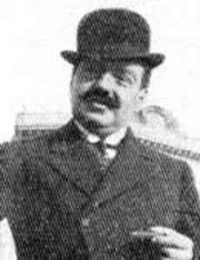
Mario Pasquale Costa was a prolific Italian composer primarily known for his art songs, Neapolitan songs, and operettas. Costa was born in Taranto to Angelo and Maria Giuseppa née Malagisi.
Nicola Orioli
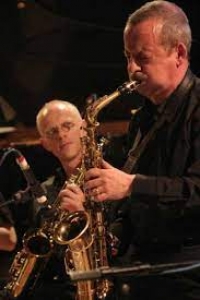
Nicola Orioli Obtained a diploma in clarinet in 1985 with the maximum of the votes at "L.D'Annunzio" high
music scholl in Pescara (Italy). He is saxophone and clarinet teacher at the Lausanne jazz school (Switzerland).
music scholl in Pescara (Italy). He is saxophone and clarinet teacher at the Lausanne jazz school (Switzerland).
Linda Perry

Linda Perry (born April 15, 1965) is an American singer-songwriter, musician, and record producer. She was the lead singer and primary songwriter of 4 Non Blondes, and has since founded two record labels and composed and produced hit songs for several other artists. They include: "Beautiful" by Christina Aguilera; "What You Waiting For?" by Gwen Stefani; and "Get the Party Started" by P!nk. Perry has also contributed to albums by Adele, Alicia Keys, and Courtney Love, as well as signing and distributing James Blunt in the United States. Perry was inducted into the Songwriters Hall of Fame in 2015.
David W. Cason
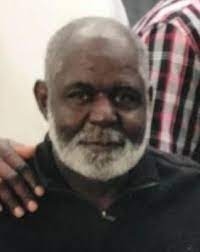
David W. Cason a virtuosic musician whose life story displays the complexities of being a Black professional in the segregated South. David Cason discusses how Jackson .
Daniil Kramer
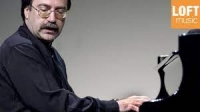
Daniel Kramer (born in 1960), Honored Artist of Russia, graduated from the Kharkov Secondary Special Music School as classical pianist.
Alphonse Catherine
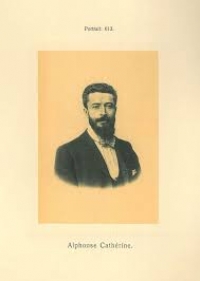
Alphonse Catherine (Composer). Born: 16th November 1868, Paris, France. Died: 21st May 1927, Paris, France. Nationality: French ...
Mimi Spencer
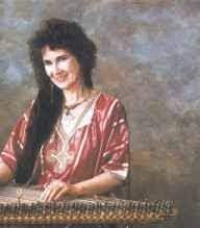
Mimi Spencer (born 1946, died February 7, 2004) was an American multi-instrumentalist specializing in Middle Eastern music and instruments
DEL ROMA
The music was written by Franck Pourcel (using the pseudonym J.W. Stole) and Paul Mauriat (using the pseudonym Del Roma). It was adapted by Arthur Altman.
Music theory

Music theory is the study of the practices and possibilities of music. The Oxford Companion to Music describes three interrelated uses of the term "music theory"
E. Meyer Helmund
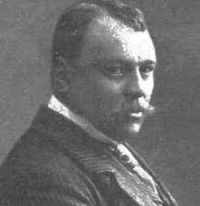
Erik Meyer-Helmund was a Berlin-based composer and singer. His song "Flirtation" was recorded by John McCormack, and his "Gute Nacht, mein holdes, süßes Mädchen" by Nicolai Gedda and Fritz Wunderlich. Helen Tretbar translated several of his lieder from German into English.
Germaine Tailleferre
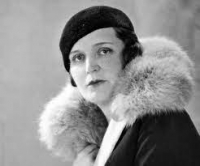
Germaine Tailleferre (French: ; born Marcelle Germaine Taillefesse; 19 April 1892 – 7 November 1983) was a French composer and the only female member of the group of composers known as Les Six.Marcelle Germaine Taillefesse was born at Saint-Maur-des-Fossés, Val-de-Marne, France, but as a young woman she changed her last name from "Taillefesse" to "Tailleferre" to spite her father, who had refused to support her musical studies. She studied piano with her mother at home, composing short works of her own, after which she began studying at the Paris Conservatory where she met Louis Durey, Francis Poulenc, Darius Milhaud, Georges Auric, and Arthur Honegger. At the Paris Conservatory her skills were rewarded with prizes in several categories. Most notably, Tailleferre wrote 18 short works in the Petit livre de harpe de Madame Tardieu for Caroline Luigini, the Conservatory's Assistant Professor of harp.
Jan Harms
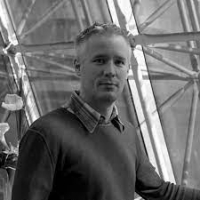
Jan Harms Born in Melun (France) in 1975, its now 29 years that I practice cello (concerts, recordings...) and 10 years piano as self-teached. Since, I'm interested and working on composition for several musical formations near my chemist job. Today, I'm very glad to hear my writings played and sung. However, I want to let them know to a larger public.
José Becerril Alatorre
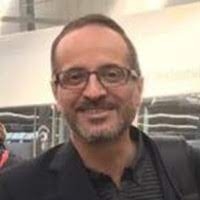
José Becerril Alatorre Composer Piano Player Classical/Contemporary Vocal Country MEXICO
Real Book

The Real Book refers to compilations of lead sheets for jazz standards. It usually refers to the first volume of a series of books transcribed and collated by Berklee College of Music students during the 1970s.The name is derived from "fake books", so called because they contained only rough outlines of music pieces rather than fully notated scores. Early fake books were often used by professional bands who performed mostly standards, often more geared to society and dance bands rather than jazz ensembles, and devoted much space to show tunes, novelty tunes, traditional jazz, etc. The first three Real Book volumes, in contrast, contained many bebop and other jazz standards that were likely to be encountered on jazz gigs at the time. For this reason, the books were quickly adopted among jazz players in the 1970s, particularly on the east coast.
Bob Geldof

Robert Frederick Zenon Geldof KBE (/ˈɡɛldɒf/; born 5 October 1951), is an Irish singer-songwriter and political activist. He rose to prominence as the lead singer of the Irish rock band the Boomtown Rats in the late 1970s, who achieved popularity at the time of the punk rock movement. The band had UK number one hits with his compositions "Rat Trap" and "I Don't Like Mondays". Geldof starred as "Pink" in Pink Floyd's 1982 film Pink Floyd – The Wall. As a fundraiser, Geldof organised the charity supergroup Band Aid and the concerts Live Aid and Live 8, and co-wrote "Do They Know It's Christmas?", one of the best-selling singles of all time
Gilbert DeBenedetti
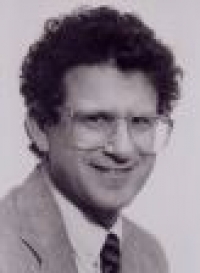
Pittsburgh, Pennsylvania (USA), getting degrees in Music from Carnegie-Mellon University and from the University of Pittsburgh.
Besides arranging music for piano, I have enjoyed teaching Music Theory. I taught that subject at the University of Pittsburgh at Greensburg and at the Pittsburgh High School for Creative and Performing Arts (CAPA). I also have been involved with the Advanced Placement Music Theory Exam, developed and administered by the Educational Testing Service and the College Board.
Besides arranging music for piano, I have enjoyed teaching Music Theory. I taught that subject at the University of Pittsburgh at Greensburg and at the Pittsburgh High School for Creative and Performing Arts (CAPA). I also have been involved with the Advanced Placement Music Theory Exam, developed and administered by the Educational Testing Service and the College Board.
Tiziano Benedetti
Tiziano Ferro is an Italian singer, songwriter, producer and author. He broke through in 2001 with his international hit single "Perdono" and has remained ...
Koen Dejonghe

Koen Dejonghe has held a position at the conservatory in Antwerp since 1986, teaching practical harmony and improvisation. He currently also gives classes in accompaniment, instrumental ensemble performance and harmony and counterpoint at the music academies of Sint-Niklaas and Antwerp.
Robert Sheldon

Robert Sheldon (b. Feb 3, 1954) has taught instrumental music in the Florida and Illinois public schools and has served on the faculty at Florida State University where he taught instrumental music education classes, conducting, and directed the university bands. Following seventeen years as Director of Concert Band Publications for Alfred Music, he now maintains an active composition and conducting schedule, regularly accepting commissions for new works.
Richard Rodgers

Richard Charles Rodgers (June 28, 1902 – December 30, 1979) was an American composer of music for more than 900 songs and for 43 Broadway musicals. He also composed music for films and television. He is best known for his songwriting partnerships with the lyricists Lorenz Hart and Oscar Hammerstein II. His compositions have had a significant impact on popular music down to the present day, and have an enduring broad appeal.
Rodgers is one of only two persons to have won an Oscar, a Grammy, an Emmy, a Tony Award, and a Pulitzer Prize (Marvin Hamlisch is the other).
Rodgers is one of only two persons to have won an Oscar, a Grammy, an Emmy, a Tony Award, and a Pulitzer Prize (Marvin Hamlisch is the other).
Christine McVie
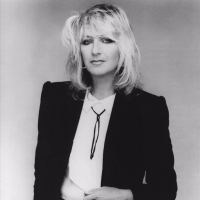
Christine Anne McVie is an English singer, songwriter, and keyboardist, and one of the three lead vocalists and the keyboardist of Fleetwood Mac, which she joined in 1970. She has also released three solo albums. She has a contralto voice. Her direct but poignant lyrics focus on love and relationships.
Edvard Grieg

Edvard Hagerup Grieg (15 June 1843 – 4 September 1907) was a Norwegian composer and pianist who composed in the Romantic period. He is best known for his Piano Concerto in A minor, for his incidental music to Henrik Ibsen's play Peer Gynt (which includes Morning Mood and In the Hall of the Mountain King), and for his collection of piano miniatures Lyric Pieces. "Edvard" is sometimes mispelt as "Edward".
Grieg is renowned as a nationalist composer, drawing inspiration from Norwegian folk music. Early works include a symphony (which he later suppressed) and a piano sonata. He also wrote three sonatas for violin and piano and a cello sonata. His many short pieces for piano — often based on Norwegian folk tunes and dances — led some to call him the "Chopin of the North".
Concerto in A minor: 1. Allegro molto moderato
Performed by the University of Washington Symphony, conducted by Peter Erős (Neal O'Doan, piano)
Concerto in A minor: 1. Allegro molto moderato
Performed by the Skidmore College Orchestra (courtesy of Musopen)
Concerto in A minor: 2. Adagio
Performed by the University of Washington Symphony, conducted by Peter Erős (Neal O'Doan, piano)
Concerto in A minor: 2. Adagio
Performed by the Skidmore College Orchestra (courtesy of Musopen)
Concerto in A minor: 3. Allegro moderato molto e marcato
Performed by the University of Washington Symphony, conducted by Peter Erős (Neal O'Doan, piano)
Concerto in A minor: 3. Allegro moderato molto e marcato
Performed by the Skidmore College Orchestra (courtesy of Musopen)
Notturno, Op. 54, No. 4
Performed live by Mark Gasser
Problems listening to these files? See media help.
The Piano Concerto is his most popular work. Its champions have included the pianist and composer Percy Grainger, a personal friend of Grieg who played the concerto frequently during his long career. An arrangement of part of the work made an iconic television comedy appearance in the 1971 Morecambe and Wise Show, conducted by André Previn.
Some of the Lyric Pieces (for piano) are also well-known, as is the incidental music to Henrik Ibsen's play Peer Gynt, a play that Grieg found to be an arduous work to score properly. In a 1874 letter to his friend Frants Beyer, Grieg expressed his unhappiness with what is now considered one of his most popular compositions from Peer Gynt, In the Hall of the Mountain King: "I have also written something for the scene in the hall of the mountain King - something that I literally can't bear listening to because it absolutely reeks of cow-pies, exaggerated Norwegian nationalism, and trollish self-satisfaction! But I have a hunch that the irony will be discernible."
Grieg is renowned as a nationalist composer, drawing inspiration from Norwegian folk music. Early works include a symphony (which he later suppressed) and a piano sonata. He also wrote three sonatas for violin and piano and a cello sonata. His many short pieces for piano — often based on Norwegian folk tunes and dances — led some to call him the "Chopin of the North".
Concerto in A minor: 1. Allegro molto moderato
Performed by the University of Washington Symphony, conducted by Peter Erős (Neal O'Doan, piano)
Concerto in A minor: 1. Allegro molto moderato
Performed by the Skidmore College Orchestra (courtesy of Musopen)
Concerto in A minor: 2. Adagio
Performed by the University of Washington Symphony, conducted by Peter Erős (Neal O'Doan, piano)
Concerto in A minor: 2. Adagio
Performed by the Skidmore College Orchestra (courtesy of Musopen)
Concerto in A minor: 3. Allegro moderato molto e marcato
Performed by the University of Washington Symphony, conducted by Peter Erős (Neal O'Doan, piano)
Concerto in A minor: 3. Allegro moderato molto e marcato
Performed by the Skidmore College Orchestra (courtesy of Musopen)
Notturno, Op. 54, No. 4
Performed live by Mark Gasser
Problems listening to these files? See media help.
The Piano Concerto is his most popular work. Its champions have included the pianist and composer Percy Grainger, a personal friend of Grieg who played the concerto frequently during his long career. An arrangement of part of the work made an iconic television comedy appearance in the 1971 Morecambe and Wise Show, conducted by André Previn.
Some of the Lyric Pieces (for piano) are also well-known, as is the incidental music to Henrik Ibsen's play Peer Gynt, a play that Grieg found to be an arduous work to score properly. In a 1874 letter to his friend Frants Beyer, Grieg expressed his unhappiness with what is now considered one of his most popular compositions from Peer Gynt, In the Hall of the Mountain King: "I have also written something for the scene in the hall of the mountain King - something that I literally can't bear listening to because it absolutely reeks of cow-pies, exaggerated Norwegian nationalism, and trollish self-satisfaction! But I have a hunch that the irony will be discernible."
Delaney & Bonnie
Delaney & Bonnie were an American duo of singer-songwriters Delaney Bramlett and Bonnie Bramlett. In 1969 and 1970, they fronted a rock/soul ensemble, Delaney & Bonnie and Friends, whose members at ...
The Buddy Rich Big Band
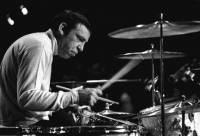
Music, great music, reminds us of a time, a place. . . an experience. Picture yourself at the center of one of the most exciting times ever! While the world was swirling with long overdue social and political change, we found ourselves “sitting in”, and “turning on”, on our way to “free love”. The freedom of expression was everywhere, but nowhere as much as in the music scene where the soundtrack to a decade was being created, one guitar chord, one saxophone riff, and one snare drum crack at a time. Some lived through it, some heard about it, and others have only read about. Sadly, the past is past.
Handel

George Frideric Handel (Friday, 23 February 1685 - Saturday, 14 April 1759) was a German-born Baroque composer who is famous for his operas, oratorios and concerti grossi. Born as Georg Friedrich Handel in Halle, he spent most of his adult life in England, becoming a subject of the British crown on 22 January 1727. His most famous works are Messiah, an oratorio set to texts from the King James Bible; Water Music; and Music for the Royal Fireworks. Strongly influenced by the techniques of the great composers of the Italian Baroque and the English composer Henry Purcell, his music was known to many significant composers who came after him, including Haydn, Mozart, and Beethoven.
Handel's compositions include 42 operas; 29 oratorios; more than 120 cantatas, trios and duets; numerous arias; chamber music; a large number of ecumenical pieces; odes and serenatas; and sixteen organ concerti. His most famous work, the Messiah oratorio with its "Hallelujah" chorus, is among the most popular works in choral music and has become a centerpiece of the Christmas season. Also popular are the Opus 3 and 6 Concerti Grossi, as well as "The Cuckoo and the Nightingale", in which birds are heard calling during passages played in different keys representing the vocal ranges of two birds. Also notable are his sixteen keyboard suites, especially The Harmonious Blacksmith.
Handel introduced various previously uncommon musical instruments in his works: the viola d'amore and violetta marina (Orlando), the lute (Ode for St. Cecilia's Day), three trombones (Saul), clarinets or small high cornets (Tamerlano), theorbo, French horn (Water Music), lyrichord, double bassoon, viola da gamba, bell chimes, positive organ, and harp (Giulio Cesare, Alexander's Feast).
Handel's compositions include 42 operas; 29 oratorios; more than 120 cantatas, trios and duets; numerous arias; chamber music; a large number of ecumenical pieces; odes and serenatas; and sixteen organ concerti. His most famous work, the Messiah oratorio with its "Hallelujah" chorus, is among the most popular works in choral music and has become a centerpiece of the Christmas season. Also popular are the Opus 3 and 6 Concerti Grossi, as well as "The Cuckoo and the Nightingale", in which birds are heard calling during passages played in different keys representing the vocal ranges of two birds. Also notable are his sixteen keyboard suites, especially The Harmonious Blacksmith.
Handel introduced various previously uncommon musical instruments in his works: the viola d'amore and violetta marina (Orlando), the lute (Ode for St. Cecilia's Day), three trombones (Saul), clarinets or small high cornets (Tamerlano), theorbo, French horn (Water Music), lyrichord, double bassoon, viola da gamba, bell chimes, positive organ, and harp (Giulio Cesare, Alexander's Feast).
Roget Pontbriand
Roget Pontbriand is currently the director of jazz and popular music at Palm Beach Atlantic University. He formerly served as the department chair at Grace ...
 Sheet Music Network is a site for those who wants to access popular sheet music easily,
letting them download the sheet music for free for trial purposes.
It's completely free to download and try the listed sheet music, but you have to delete the files after 24 hours of trial.
Don't forget, if you like the piece of music you have just learned playing,
treat the artist with respect, and go buy the original sheet music.
Sheet Music Network is a site for those who wants to access popular sheet music easily,
letting them download the sheet music for free for trial purposes.
It's completely free to download and try the listed sheet music, but you have to delete the files after 24 hours of trial.
Don't forget, if you like the piece of music you have just learned playing,
treat the artist with respect, and go buy the original sheet music.
